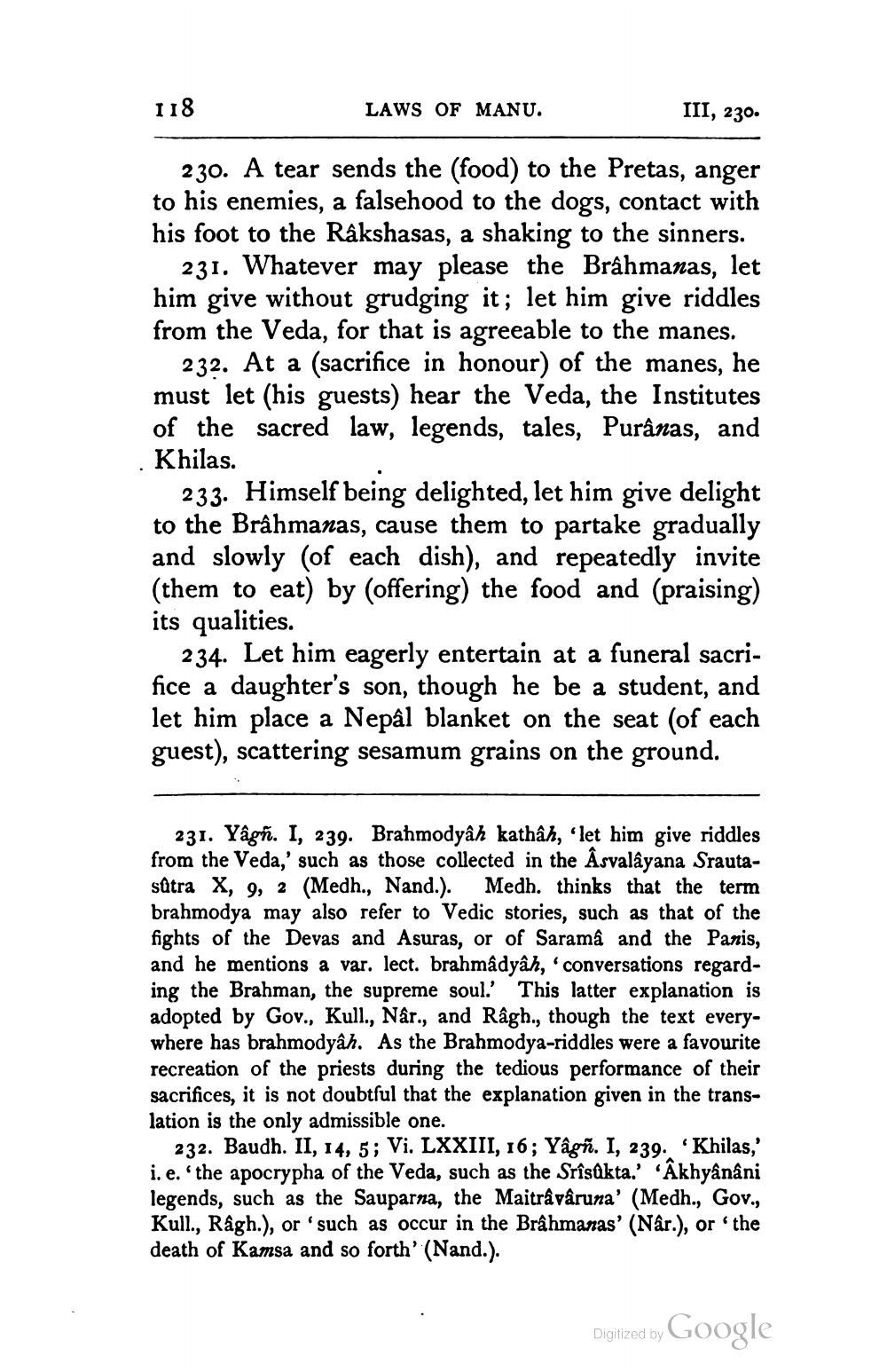________________
118
LAWS OF MANU.
III, 230.
230. A tear sends the (food) to the Pretas, anger to his enemies, a falsehood to the dogs, contact with his foot to the Râkshasas, a shaking to the sinners.
231. Whatever may please the Brahmanas, let him give without grudging it; let him give riddles from the Veda, for that is agreeable to the manes.
232. At a (sacrifice in honour) of the manes, he must let (his guests) hear the Veda, the Institutes of the sacred law, legends, tales, Purânas, and Khilas.
233. Himself being delighted, let him give delight to the Brahmanas, cause them to partake gradually and slowly (of each dish), and repeatedly invite (them to eat) by (offering) the food and (praising) its qualities.
234. Let him eagerly entertain at a funeral sacrifice a daughter's son, though he be a student, and let him place a Nepâl blanket on the seat (of each guest), scattering sesamum grains on the ground.
231. Yâgñ. I, 239. Brahmodyâh kathâh, 'let him give riddles from the Veda,' such as those collected in the Âsvalâyana Srautasûtra X, 9, 2 (Medh., Nand.). Medh. thinks that the term brahmodya may also refer to Vedic stories, such as that of the fights of the Devas and Asuras, or of Saramâ and the Paris, and he mentions a var. lect. brahmâdyâh, 'conversations regarding the Brahman, the supreme soul.' This latter explanation is adopted by Gov., Kull., Nâr., and Râgh., though the text everywhere has brahmodyâh. As the Brahmodya-riddles were a favourite recreation of the priests during the tedious performance of their sacrifices, it is not doubtful that the explanation given in the translation is the only admissible one.
232. Baudh. II, 14, 5; Vi. LXXIII, 16; Yâgn. I, 239. 'Khilas,' i. e. 'the apocrypha of the Veda, such as the Srîsûkta.' 'Akhyânâni legends, such as the Sauparna, the Maitrâvâruna' (Medh., Gov., Kull., Râgh.), or 'such as occur in the Brahmanas' (Nâr.), or 'the death of Kamsa and so forth' (Nand.).
Digitized by
Google




